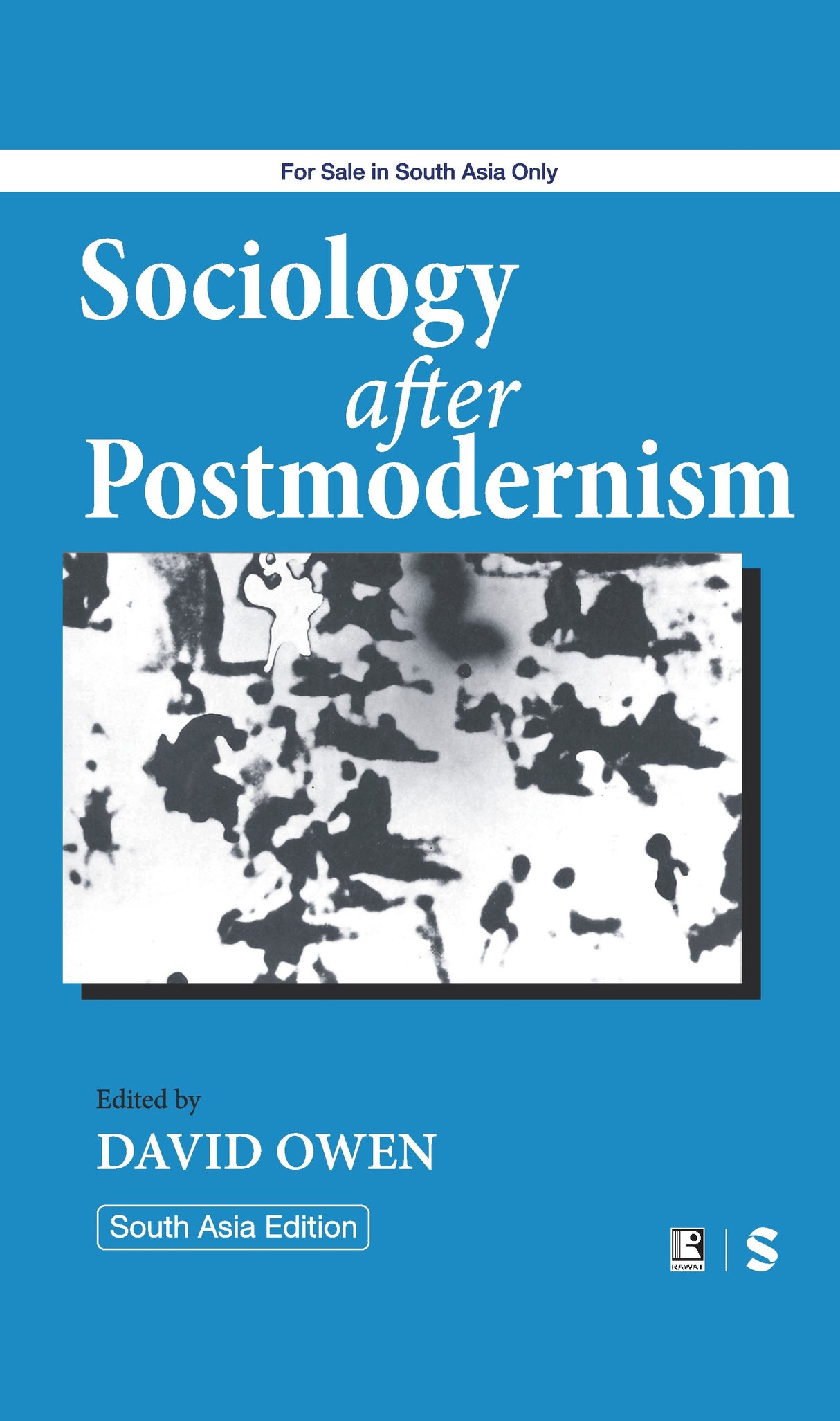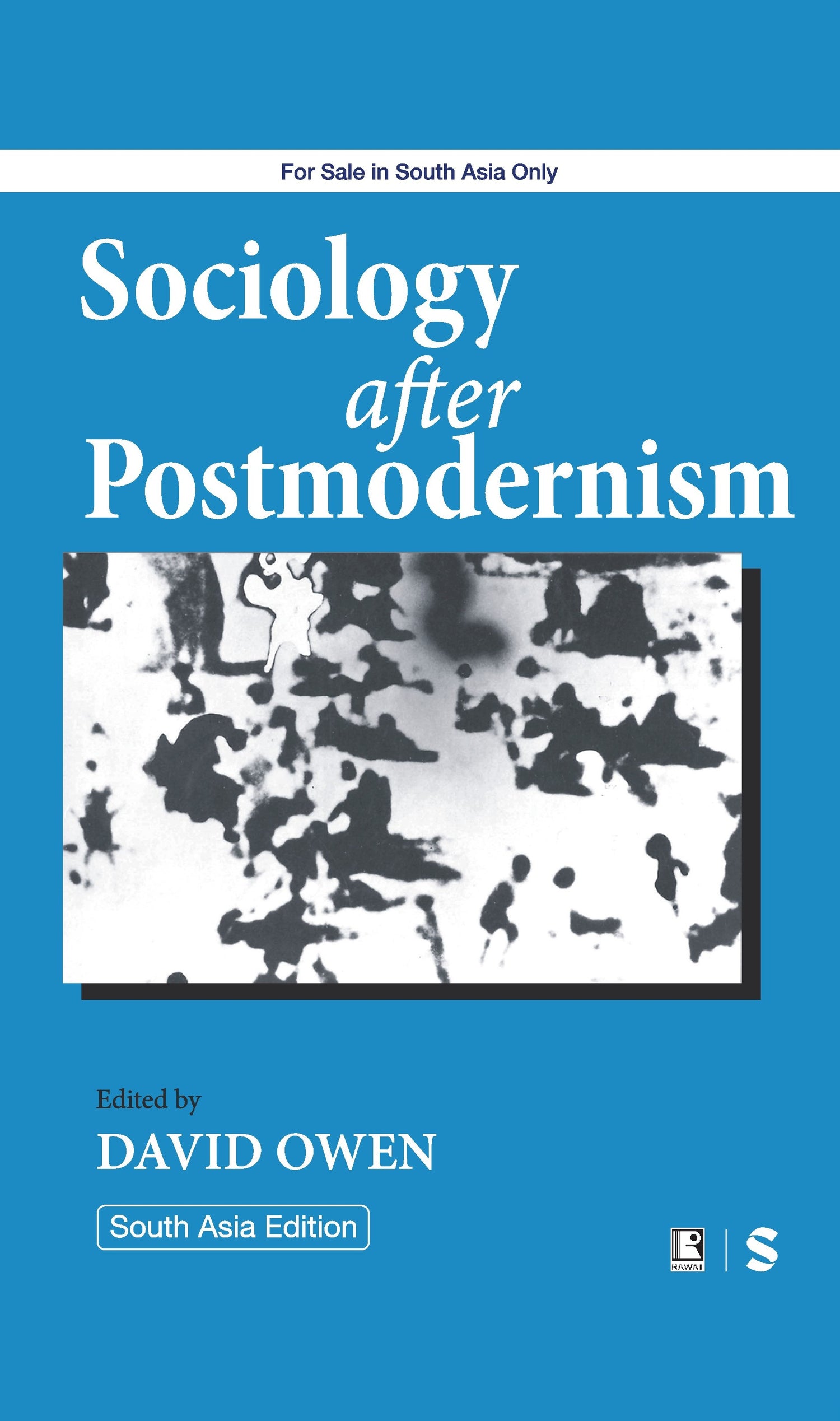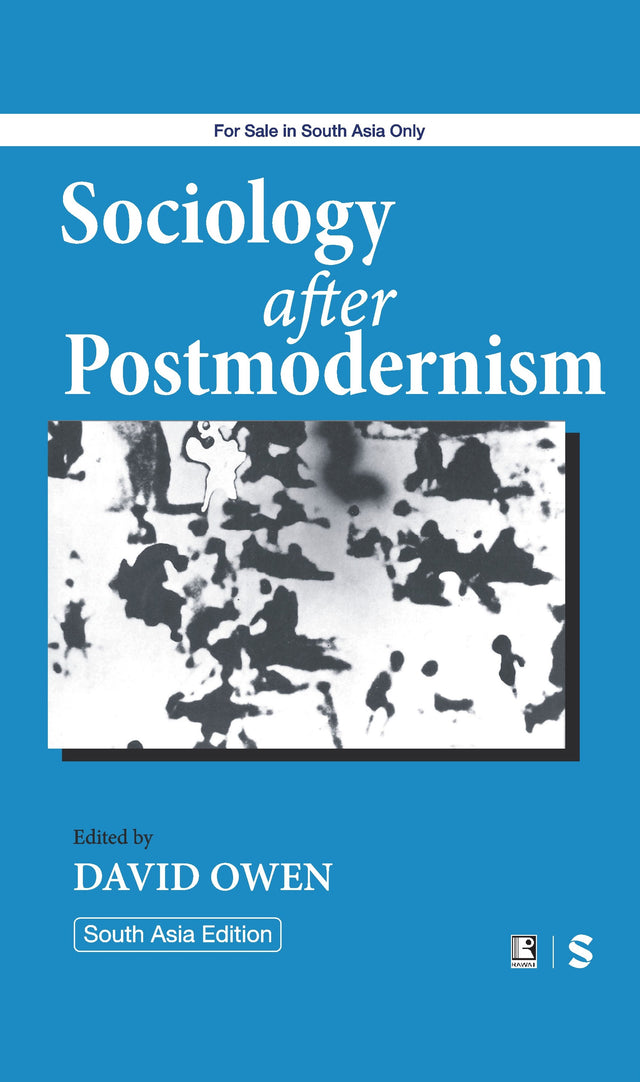SOCIOLOGY AFTER POSTMODERNISM
SOCIOLOGY AFTER POSTMODERNISM is backordered and will ship as soon as it is back in stock.
Couldn't load pickup availability
Genuine Products Guarantee
Genuine Products Guarantee
We guarantee 100% genuine products, and if proven otherwise, we will compensate you with 10 times the product's cost.
Delivery and Shipping
Delivery and Shipping
Products are generally ready for dispatch within 1 day and typically reach you in 3 to 5 days.
Book Details
-
Publisher: SAGE Publications
-
Author: David Owen (Editor)
-
Language: English
-
Edition: 2025
-
ISBN: 9789354797187
-
Pages: 240
-
Cover: Hardback
About the Book
"Sociology After Postmodernism" offers a profound and timely interrogation of the claim that postmodernism has marked the end of sociology as a meaningful discipline. Contrary to popular critiques that portray postmodernism as the death-knell for sociological inquiry, this compelling volume repositions postmodernism as a catalyst for the re-imagination of sociology.
Edited by David Owen, the book features a range of expert contributions addressing how core sociological themes—such as class, gender, race, deviance, law, culture, sexuality, science, and the body—are transformed under the lens of postmodern critique. Rather than dismantling the discipline, the authors argue that postmodernism provokes a critical reconsideration of sociology's traditional assumptions, encouraging scholars to rethink and revitalize key categories and methodologies.
Chapters delve into pressing topics like late-modern criminology, affect theory, corporeality, media studies, and feminist post-structuralism, offering fresh insight into how postmodernism intersects with the evolving realities of society. Far from abstract theorizing, the volume remains grounded in sociological practice, making it both accessible and essential for students, while offering nuanced perspectives for academics and researchers.
Designed to fill a critical gap in the literature, this book serves as both a scholarly reference and a student-friendly guide to the shifting landscape of sociological thought. It reflects the vibrant debates and reorientations currently reshaping the discipline and invites readers to envision the future of sociology in a postmodern world.
This is a must-read for students, educators, and researchers interested in contemporary social theory, cultural studies, and the future of sociology.





